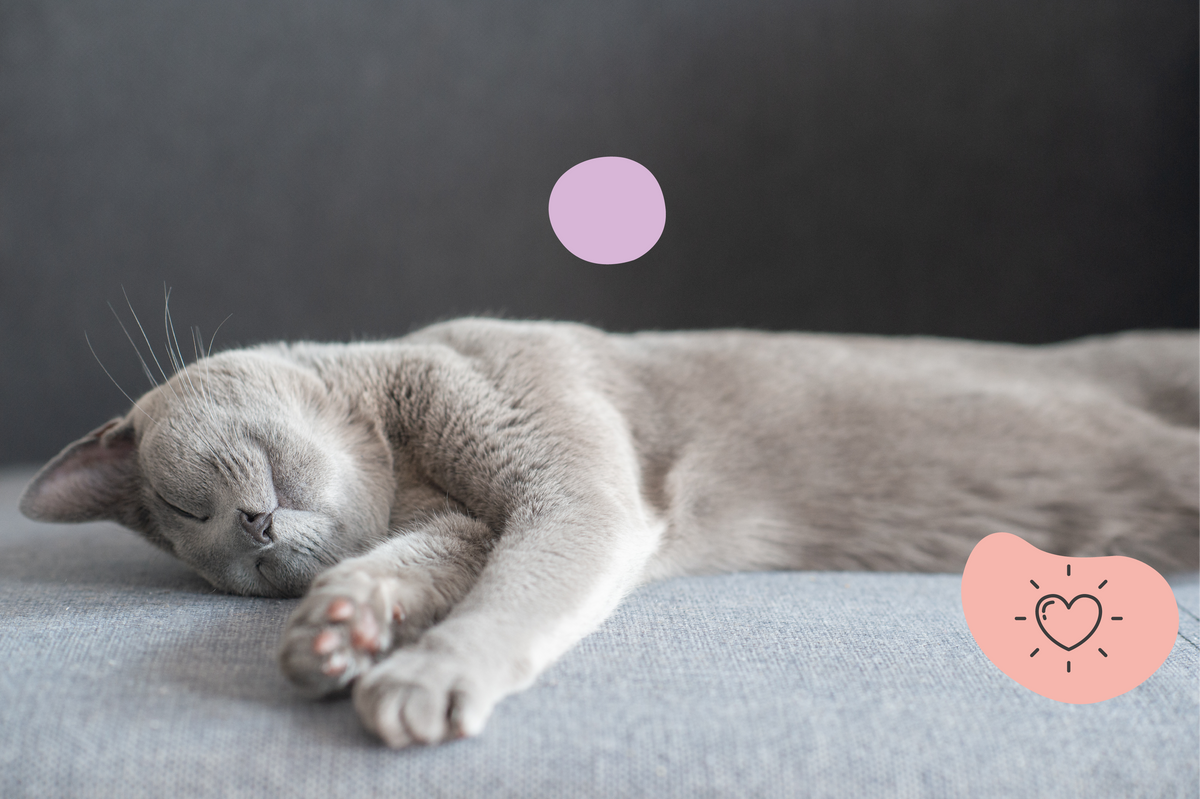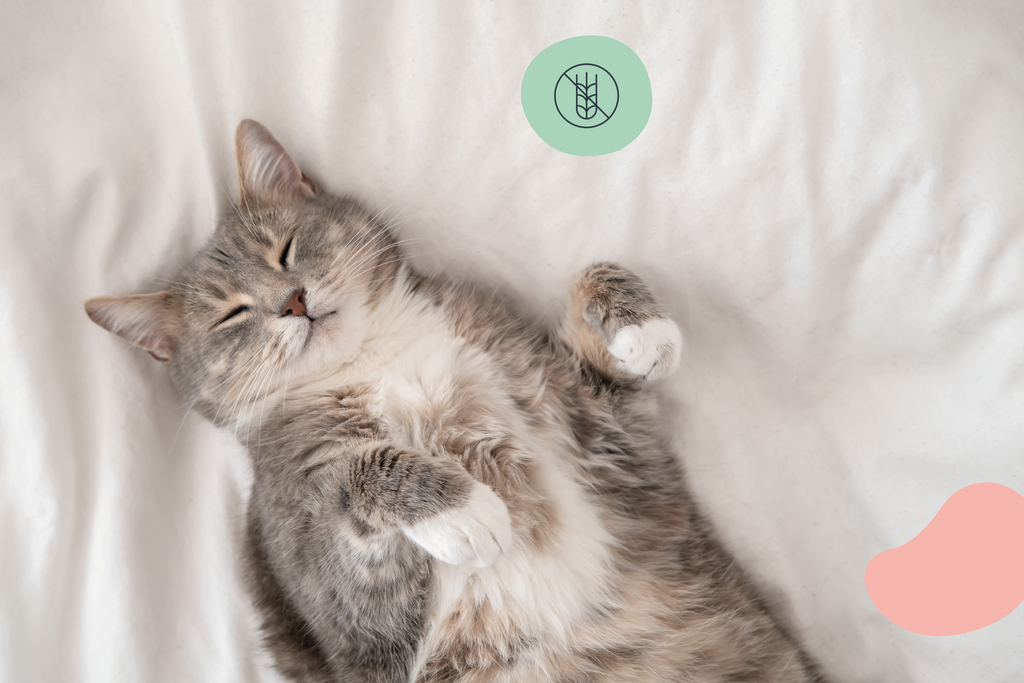Understanding and Improving Your Cat's Sleep

How long does a cat sleep?
Cats are fascinating and mysterious animals. Their tendency to sleep a lot is one example. If you're a cat owner, you've probably noticed that they sleep most of the time. On average, an adult cat sleeps between 12 and 16 hours a day. However, it's important to note that cats don't sleep in a single block, but rather in several naps throughout the day.
Cats are nocturnal animals, which means they generally have a tendency to be more active at night. During the day, they tend to take short naps, often interrupted by periods of activity. If you have a cat at home, you've probably noticed that they have moments of great activity, followed by long periods of sleep. Cats are able to go from being awake to asleep in no time at all, allowing them to recover quickly from their exertions.
The cat's different sleep cycles
The light sleep
This is the first phase of the sleep cycle. The cat is in a state of semi-sleep, but remains awake. She is still alert, as evidenced by ear movements and eyelids that are sometimes half-open. During this phase, your cat will change position if disturbed while asleep, so don't force it to stay in the place you've designated for it.
The deep sleep
This is the most important phase of sleep for cats, as it promotes cell regeneration and revitalises the body. Also known as the mental rest or body regeneration phase, deep sleep in cats can last around 30 minutes. During this period, brain activity is reduced to a minimum, breathing becomes slow, muscles relax and eyelids remain closed. Your cat will tend to curl up on itself or, on the contrary, stretch out on its side during this phase. For an adult cat, this generally represents between 9 and 12 hours of total sleep, whereas in kittens, this phase is almost non-existent.
Can cats dream?
Like humans and many other mammals, cats are known to have REM sleep phases, also known as REM sleep, where dreams occur. During this phase, cats may show paw movements, facial expressions and vocalisations that suggest they are dreaming.
It's important to make sure your cat has a comfortable place to sleep. Cats like warm, cosy places, such as cushions or cosy blankets. If your cat has a comfortable place to sleep, it will be happier and more relaxed. It's also important to make sure your cat has a safe sleeping environment, free from potential predators.
Discover our Soft & Chewy Calme cat treats!
Identifying and Understanding Sleep Disorders in Cats
Sleep disorders can affect cats of all breeds and ages. Here are some common examples:
- Insomnia: Although rare, some cats may have difficulty sleeping, usually due to physical pain or anxiety.
- Hypersomnia: This is the opposite of insomnia, where the cat sleeps excessively. This could be a sign of illness, such as hypothyroidism or depression.
- Excessive daytime sleepiness: Although cats normally sleep during the day, excessive sleepiness may indicate an underlying health problem, such as sleep apnoea or certain neurological diseases.
- Changes in sleeping habits: If your cat suddenly changes her sleeping habits, this may indicate a problem. For example, if she starts being active at night and sleeping during the day, she may be disorientated or stressed.
- Sleep apnoea: This is a disorder that affects obese or overweight cats. Cats with sleep apnoea stop breathing while they sleep, waking them frequently.
- Snoring: Although it may sound funny or cute, snoring can be a sign of a health problem in cats, including obesity, allergies, or breathing problems.
If you notice a change in your cat's sleeping patterns or other signs of sleep problems, it's important to consult a vet. These symptoms may indicate an underlying health problem that requires treatment.
Improving your cat's sleep: Advice and possible measures
It's essential to maintain an environment that's conducive to quality sleep for your cat. Here are a few things you can do to help:
- Create a comfortable sleeping space: Cats appreciate tranquillity and comfort when they sleep. Make sure your cat has a cosy, quiet and undisturbed place to rest.
- Respect your cat's sleeping habits: Cats are creatures of habit. Try to respect your cat's natural sleep cycle and avoid disturbing it when it's sleeping.
- Provide plenty of exercise: A cat that's active during the day will find it easier to sleep at night. Make sure your cat has enough opportunities to play and exercise.
- Consult a vet: If your cat seems to be having trouble sleeping, don't hesitate to consult a vet. He or she will be able to advise you and suggest solutions tailored to your pet.
- Ensure a good diet: A balanced, high-quality diet can also contribute to better sleep. What your cat eats has a direct impact on its well-being and, by extension, on the quality of its sleep. A cat well fed on natural, nutritious products will be healthier and, as a result, sleep better. Marly & Dan offers a range of 100% natural products that not only promote your cat's general well-being, but also a better quality of sleep. Marly & Dan products are developed with particular attention to the quality of the ingredients, guaranteeing optimum nutrition for your four-legged friend.
Sleep plays a vital role in your cat's health and well-being. Understanding your feline companion's sleeping habits, recognising the signs of sleep disorders and knowing how to improve the quality of his rest are key elements in ensuring his longevity and vitality. If you notice any worrying changes in your cat's sleeping behaviour, don't hesitate to consult an animal health professional. Every cat is unique, and its well-being depends on a balance between a safe, comfortable environment, the right diet, regular exercise and, above all, lots of love and attention.





